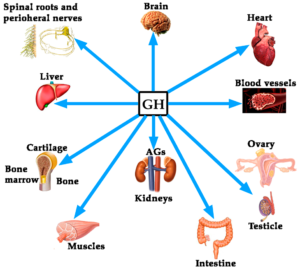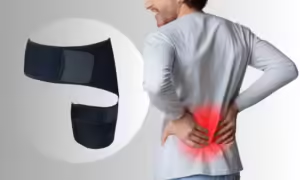
How to Kill Tooth Pain Nerve in 3 Seconds Permanently: A Comprehensive Guide
Tooth pain can be one of the most excruciating experiences you can endure. If you’re searching for a solution to “kill tooth pain nerve in 3 seconds permanently,” you’re not alone. This guide will explore effective methods to manage and potentially eliminate tooth pain, focusing on both immediate relief and long-term solutions.
Understanding Tooth Pain and Nerve Sensitivity
Before diving into solutions, it’s crucial to understand the nature of tooth pain and nerve sensitivity. Tooth pain often stems from inflammation or damage to the dental nerves within your teeth. These nerves can become irritated due to various factors such as cavities, gum disease, or even physical trauma.
Causes of Tooth Pain
- Cavities: Decay can expose sensitive nerves.
- Gum Disease: Infection can cause inflammation and pain.
- Tooth Fractures: Cracks can lead to nerve exposure.
- Bruxism: Grinding your teeth can cause sensitivity.
Understanding the root cause of your tooth pain is essential for effective treatment.
Instant Relief Techniques: Kill Tooth Pain Nerve in 3 Seconds?
While it’s challenging to guarantee complete and permanent relief in just three seconds, several techniques can offer rapid relief from tooth pain. These methods are aimed at numbing the pain temporarily, but they are not permanent solutions.
1. Cold Compress
Applying a cold compress to the affected area can provide quick relief by numbing the nerves and reducing inflammation. Wrap some ice in a cloth and apply it to the outside of your cheek near the painful tooth.
How to Use:
- Apply the cold compress for 15-20 minutes.
- Repeat every few hours as needed.
2. Clove Oil
Clove oil has natural analgesic properties and can numb the affected area quickly. It contains eugenol, which acts as a natural anesthetic.
How to Use:
- Dab a small amount of clove oil onto a cotton ball.
- Place it directly on the affected tooth or gum area.
3. Over-the-Counter Pain Relievers
Non-prescription pain relievers like ibuprofen or acetaminophen can offer temporary relief. These medications work by reducing inflammation and blocking pain signals.
How to Use:
- Follow the dosage instructions on the packaging.
- Avoid exceeding the recommended dose.
Long-Term Solutions for Permanent Relief
While quick fixes can provide temporary relief, addressing the underlying cause of your tooth pain is crucial for permanent solutions. Here are some strategies to help “kill tooth pain nerve in 3 seconds permanently”:
1. Dental Treatments
Consulting a dentist is essential for a permanent solution. Various dental treatments can address the root cause of tooth pain.
Root Canal Therapy
A root canal is a common procedure used to treat infections within the tooth’s pulp. This treatment involves removing the infected nerve and sealing the tooth.
Dental Crowns
If a tooth is severely damaged or decayed, a dental crown can protect and restore its function.
2. Preventive Care
Preventive measures can help avoid future tooth pain and maintain dental health.
Regular Checkups
Visit your dentist regularly for checkups and cleanings. Early detection of dental issues can prevent severe pain.
Good Oral Hygiene
Brush and floss daily to prevent cavities and gum disease, which can lead to tooth pain.
3. Home Remedies
Several home remedies can support dental health and potentially alleviate pain.
Salt Water Rinse
A salt water rinse can reduce inflammation and kill bacteria.
How to Use:
- Mix one teaspoon of salt in a cup of warm water.
- Swish around your mouth for 30 seconds and spit.
Hydrogen Peroxide Rinse
Hydrogen peroxide can help kill bacteria and reduce pain.
How to Use:
- Dilute hydrogen peroxide with water (equal parts).
- Swish around your mouth for 30 seconds and spit.
Alternative Therapies and Lifestyle Changes
In addition to traditional treatments, some alternative therapies and lifestyle changes can help manage tooth pain and improve overall oral health.
1. Acupuncture
Acupuncture may provide relief for some people by targeting specific points related to dental pain.
2. Herbal Remedies
Certain herbs, like chamomile and peppermint, have soothing properties that may help relieve tooth pain.
3. Stress Management
Managing stress can reduce teeth grinding and clenching, which can contribute to tooth pain.
When to Seek Professional Help
While home remedies and over-the-counter treatments can offer temporary relief, they are not substitutes for professional dental care. If you experience persistent or severe tooth pain, it’s crucial to consult a dentist. Ignoring the pain can lead to more significant issues and complications.
Warning Signs That Require Immediate Attention
- Severe Pain: Intense, throbbing pain that doesn’t subside.
- Swelling: Significant swelling of the gums or face.
- Fever: Accompanied by fever, which may indicate an infection.
Conclusion
Finding a solution to “kill tooth pain nerve in 3 seconds permanently” involves a combination of quick relief methods and long-term dental care. While instant relief techniques can help manage pain temporarily, addressing the underlying causes through professional dental treatment and preventive care is essential for permanent relief.
By understanding the causes of tooth pain and implementing both immediate and long-term strategies, you can better manage and eventually eliminate the discomfort.
FAQs
1. Can I permanently numb a tooth nerve at home?
No, permanent numbing of a tooth nerve requires professional dental treatment. Home remedies can provide temporary relief but do not address the underlying issue.
2. How long does clove oil provide relief for tooth pain?
Clove oil can offer temporary relief for a few hours. It’s essential to seek dental care for a lasting solution.
3. Are over-the-counter pain relievers safe for long-term use?
Over-the-counter pain relievers should only be used as directed and not for extended periods without consulting a healthcare provider.
4. How often should I use a cold compress for tooth pain?
Apply a cold compress for 15-20 minutes every few hours as needed, but avoid excessive use to prevent skin damage.
5. What are the best preventive measures for avoiding tooth pain?
Maintaining good oral hygiene, visiting your dentist regularly, and avoiding excessive stress can help prevent tooth pain.






